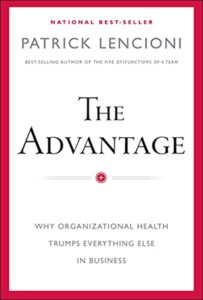|
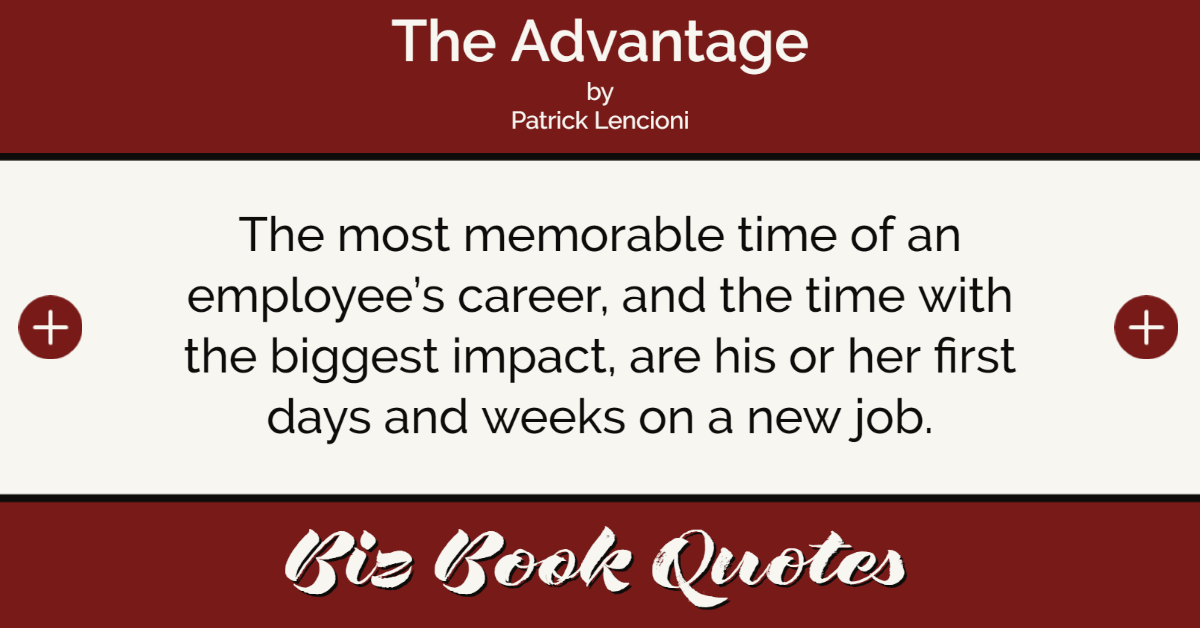
|
The Advantage:
The most memorable time of an employee’s career, and the time with the biggest impact, are his or her first days and weeks on a new job.
|
161 |
|
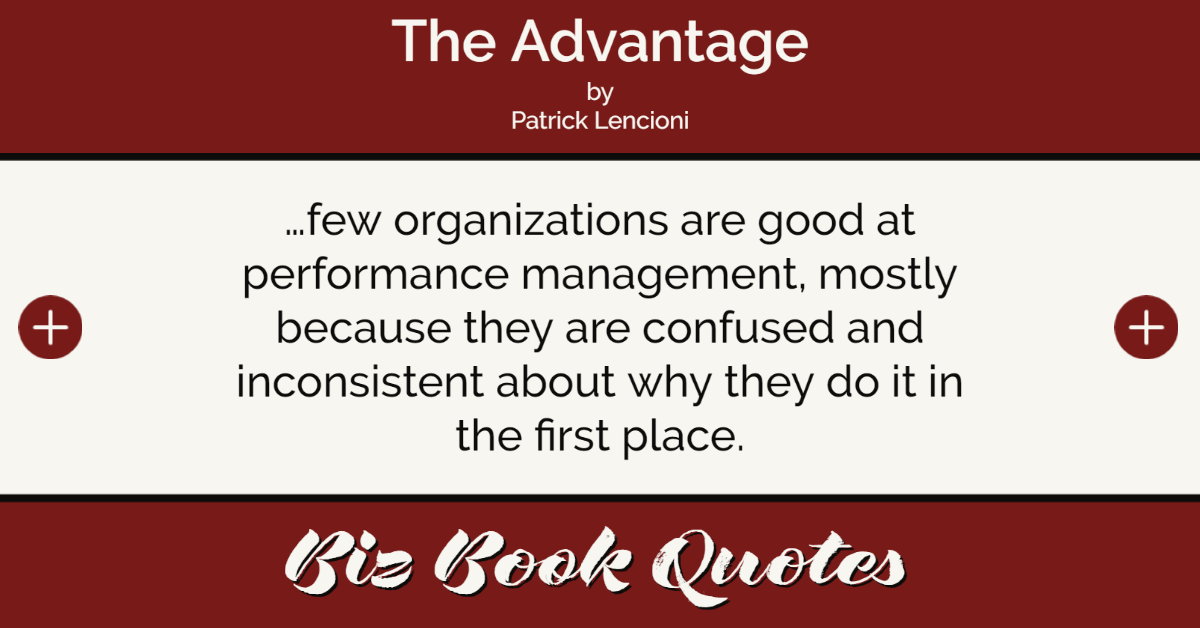
|
The Advantage:
…few organizations are good at performance management, mostly because they are confused and inconsistent about why they do it in the first place.
|
163 |
|
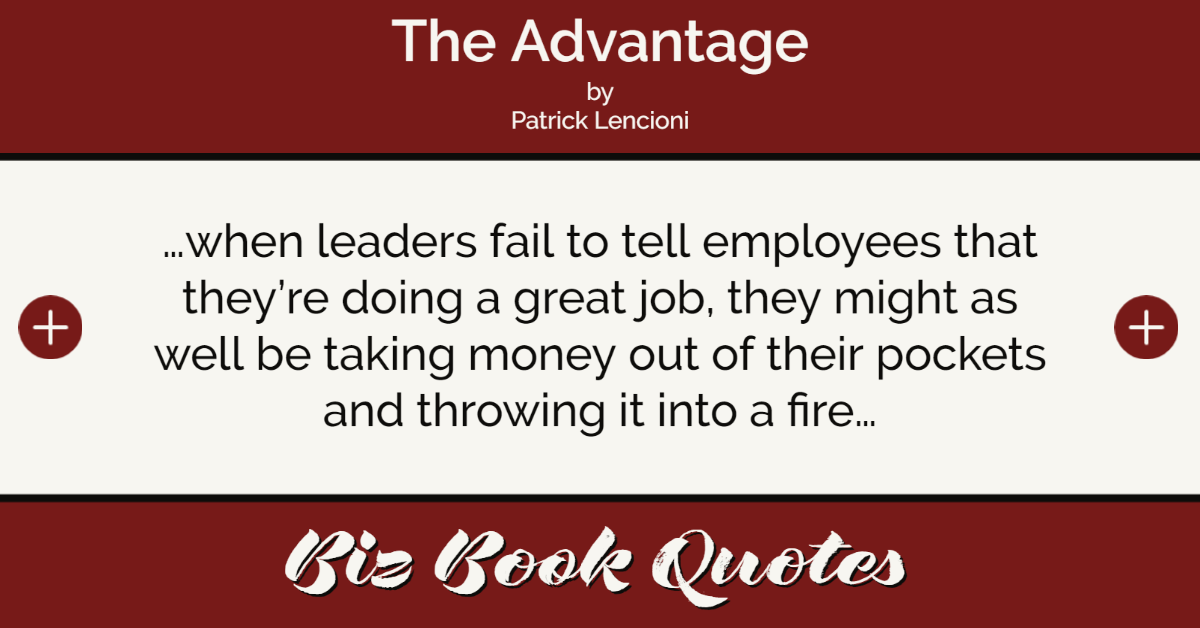
|
The Advantage:
…when leaders fail to tell employees that they’re doing a great job, they might as well be taking money out of their pockets and throwing it into a fire…
|
167 |
|
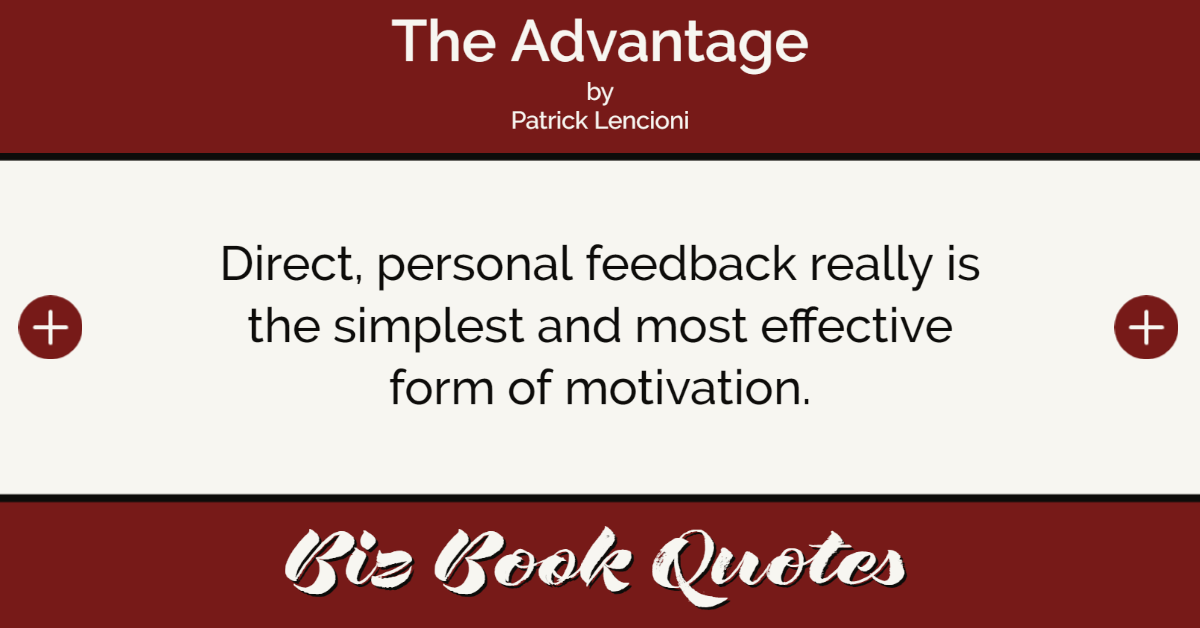
|
The Advantage:
Direct, personal feedback really is the simplest and most effective form of motivation.
|
167 |
|
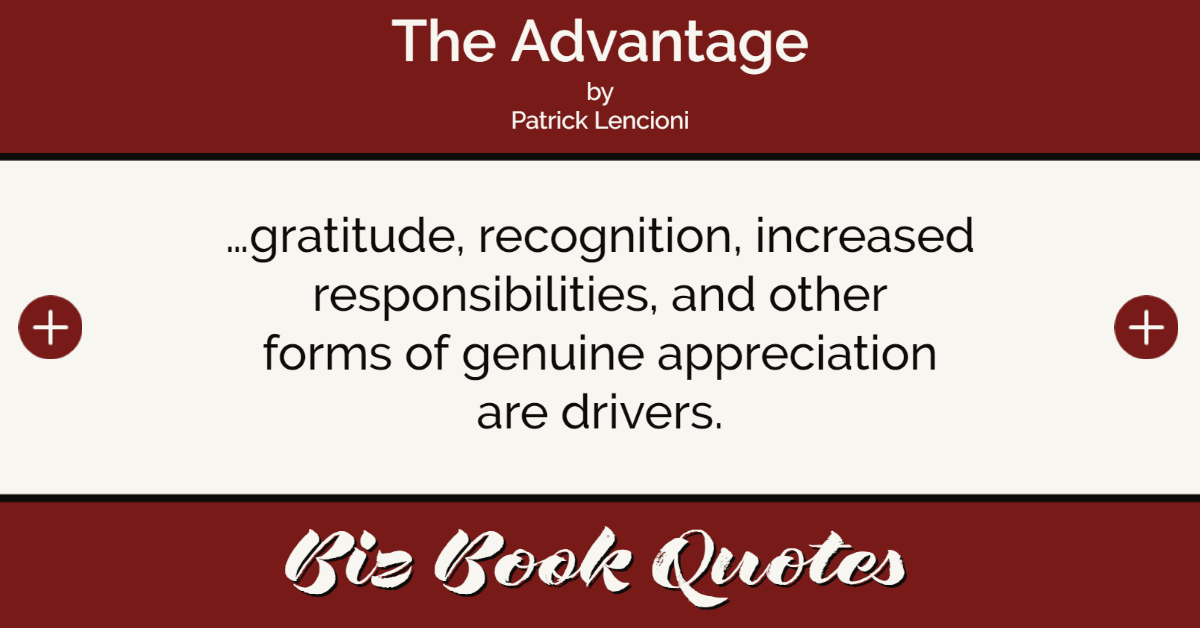
|
The Advantage:
…gratitude, recognition, increased responsibilities, and other forms of genuine appreciation are drivers.
|
168 |
|

|
The Advantage:
Tolerating behavior that flies in the face of core values inspires cynicism and becomes almost impossible to reverse over time.
|
170 |
|
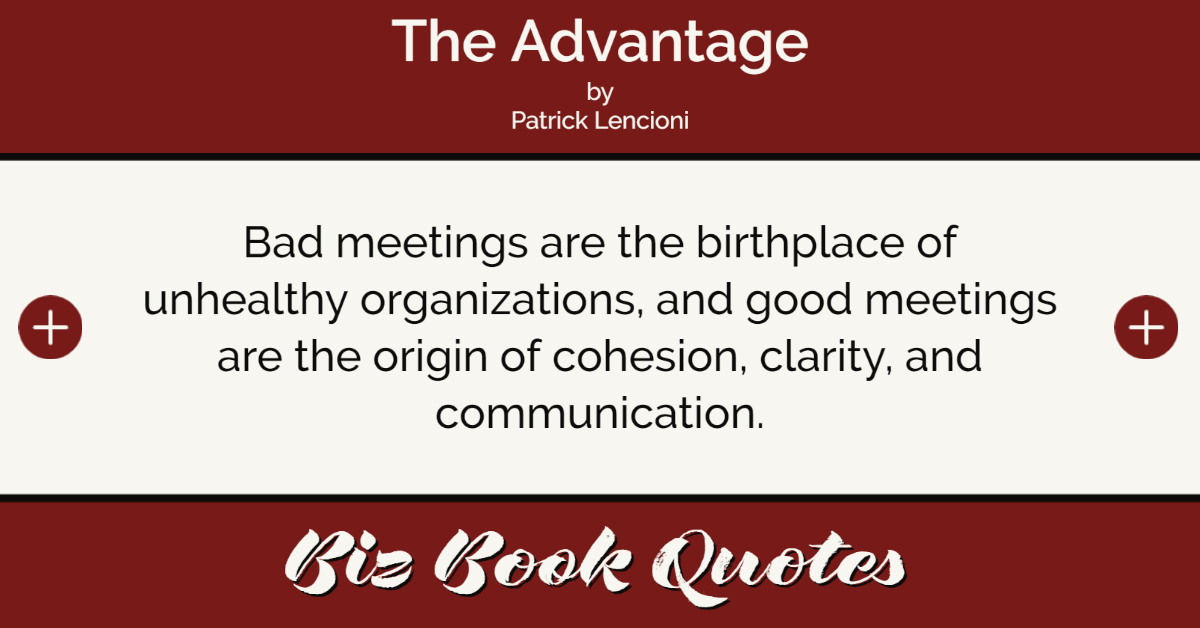
|
The Advantage:
Bad meetings are the birthplace of unhealthy organizations, and good meetings are the origin of cohesion, clarity, and communication.
|
174 |
|

|
The Advantage:
…you don’t know what you need to discuss until you’ve come together and assessed the situation.
|
179 |
|
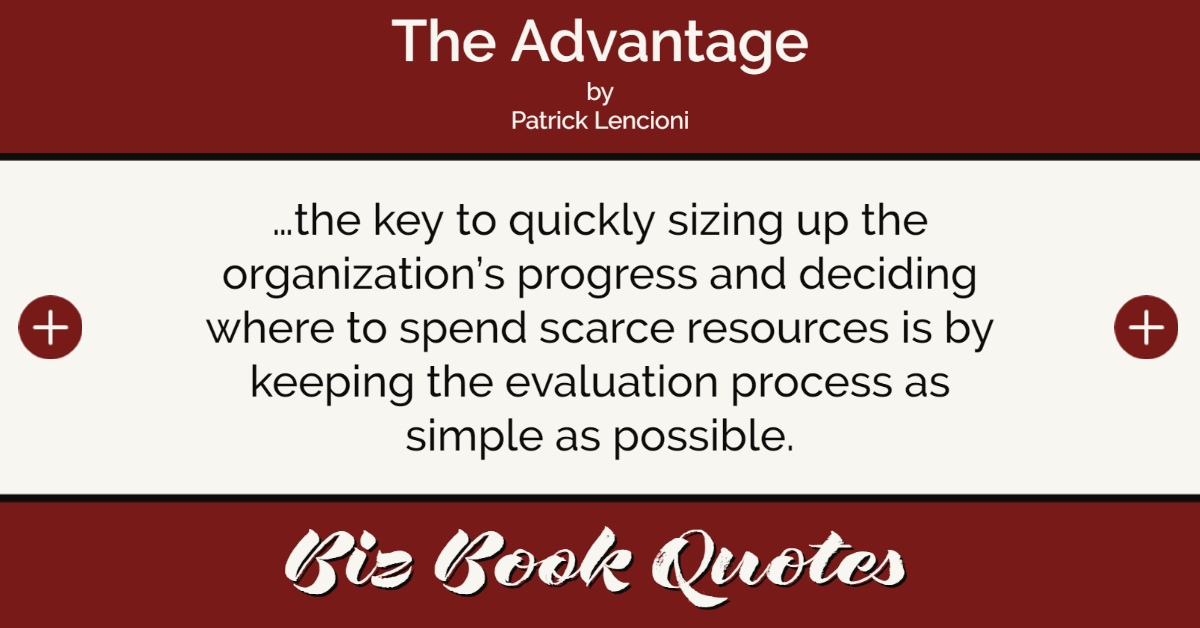
|
The Advantage:
…the key to quickly sizing up the organization’s progress and deciding where to spend scarce resources is by keeping the evaluation process as simple as possible.
|
180 |
|
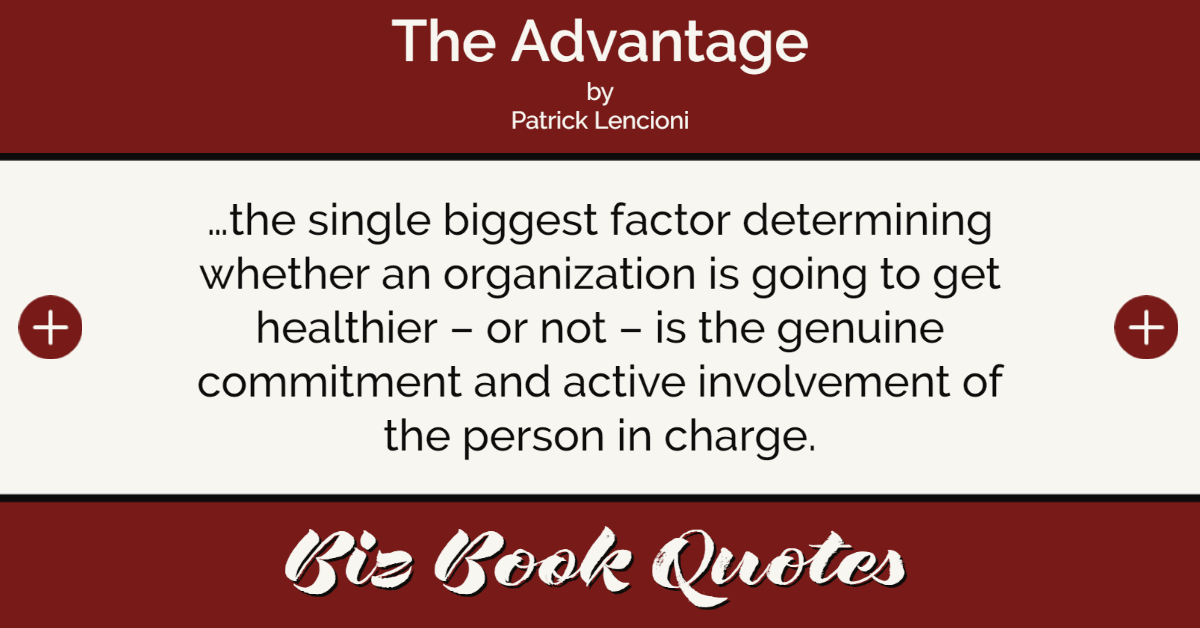
|
The Advantage:
…the single biggest factor determining whether an organization is going to get healthier – or not – is the genuine commitment and active involvement of the person in charge.
|
191 |
